StudentBase
Product Strategist & Designer
Overview

StudentBase is a pre-seed startup reimagining the student rental experience. Designed for university towns, the platform brings together students, landlords, and institutions into one ecosystem to streamline the yearly rental cycle. The goal: to reduce fragmentation and stress in a process that's often chaotic and outdated.
My Role
Product Strategist and Product Designer
Frameworks
Design Thinking, Lean UX, Product Roadmapping
Problem Statement
Finding student housing is stressful, fragmented, and often unsafe. Students juggle listings, leases, and landlords across disconnected platforms. Landlords waste hours on manual tasks, and universities lack visibility into the off-campus housing experience.
The Solution

StudentBase brings together students, landlords, and universities into a single, integrated platform built to simplify the rental experience from end to end. We designed a multi-portal iPad app with tailored user flows for each group:
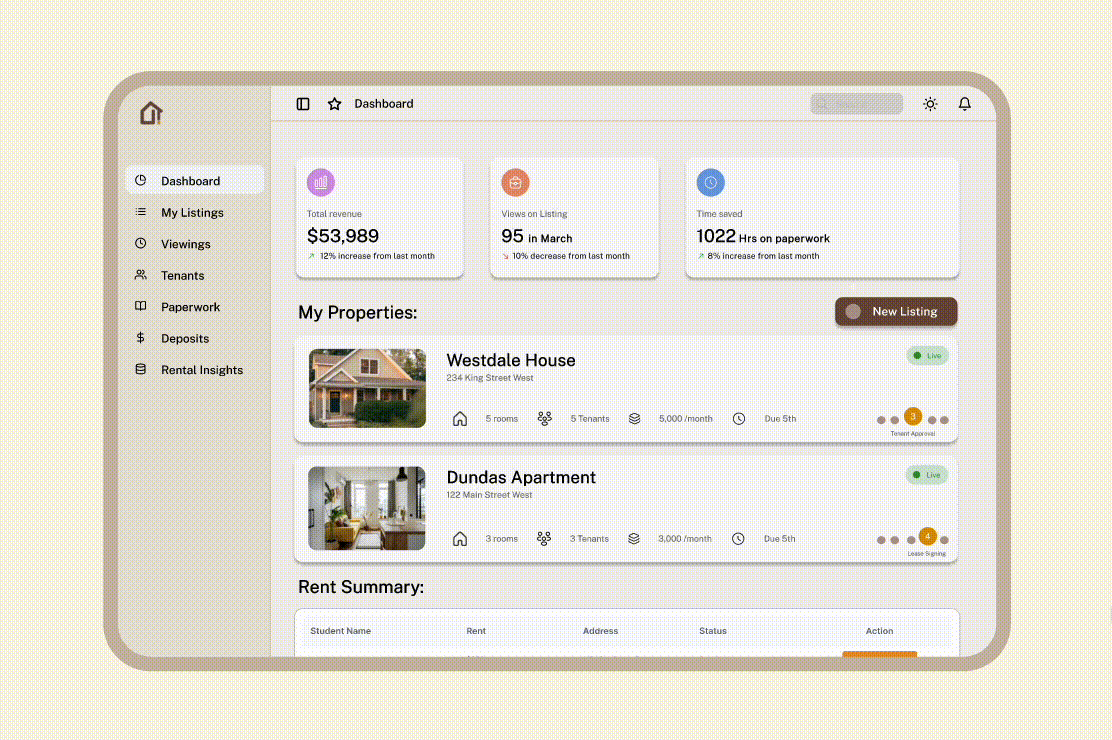
Key Features
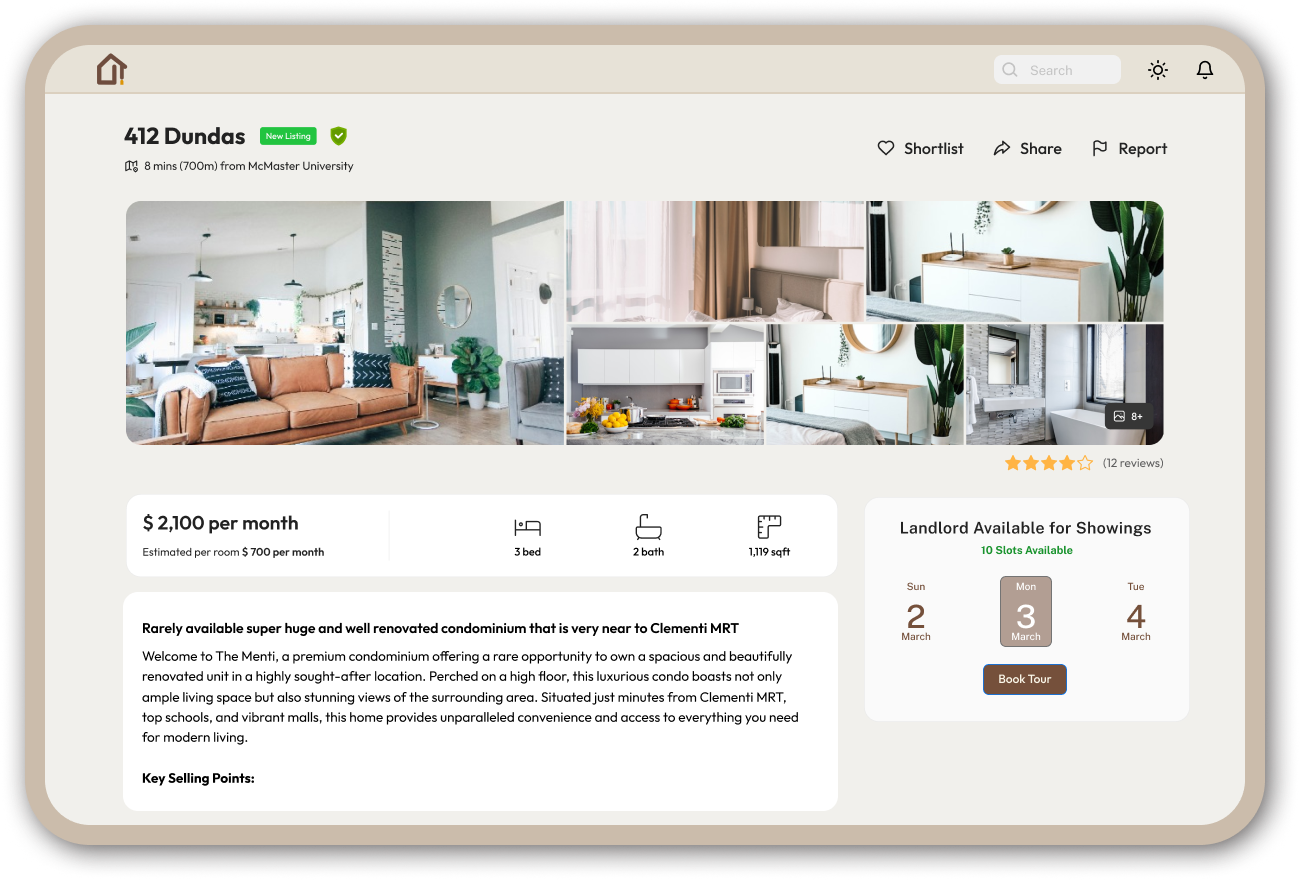
Students get access to verified listings, flexible rent payment options, and simplified lease management all from one place.
Landlords can upload listings, review applications and manage leases. Real-time updates, online lease agreemnts and payment options in one place.
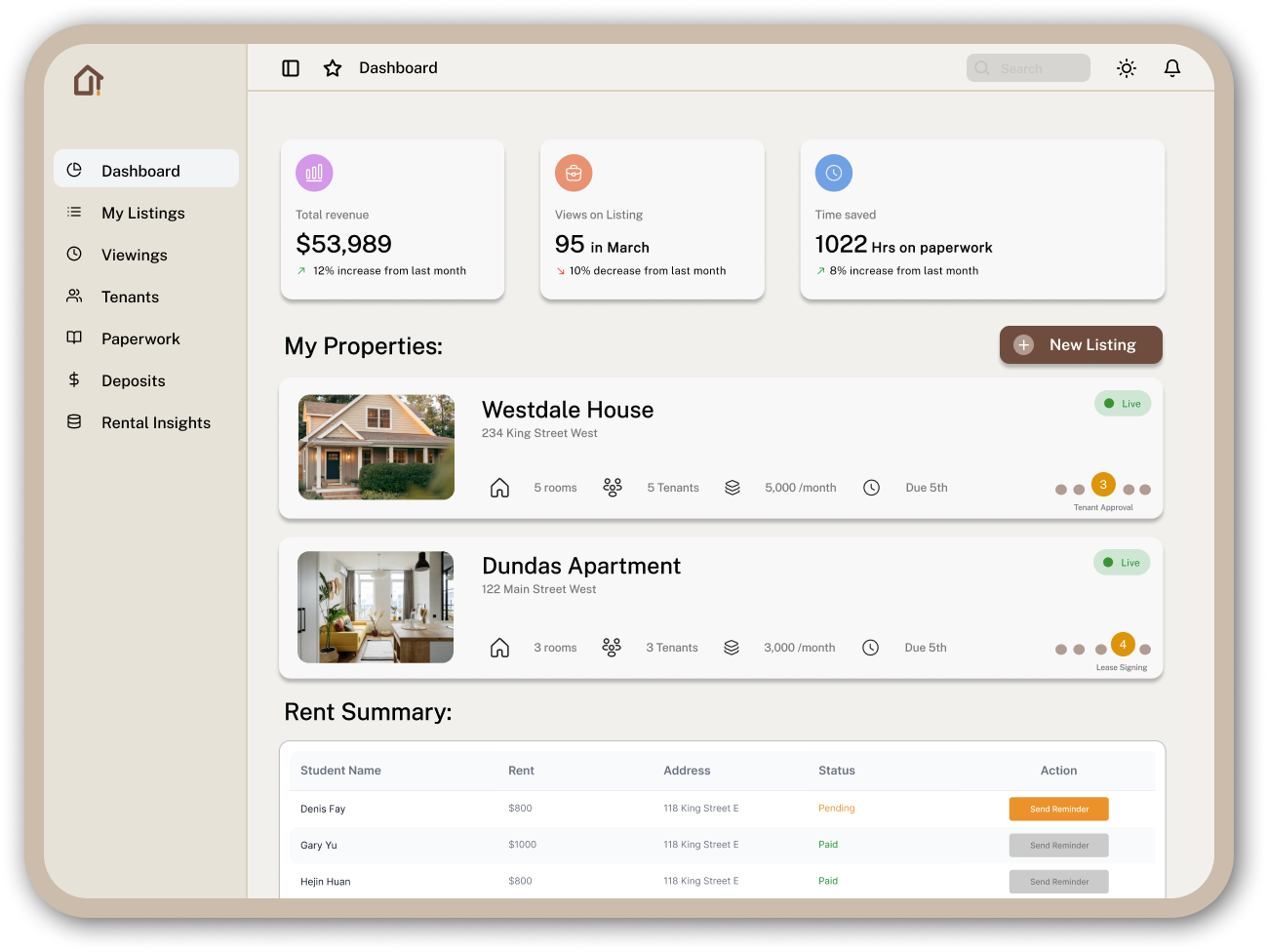
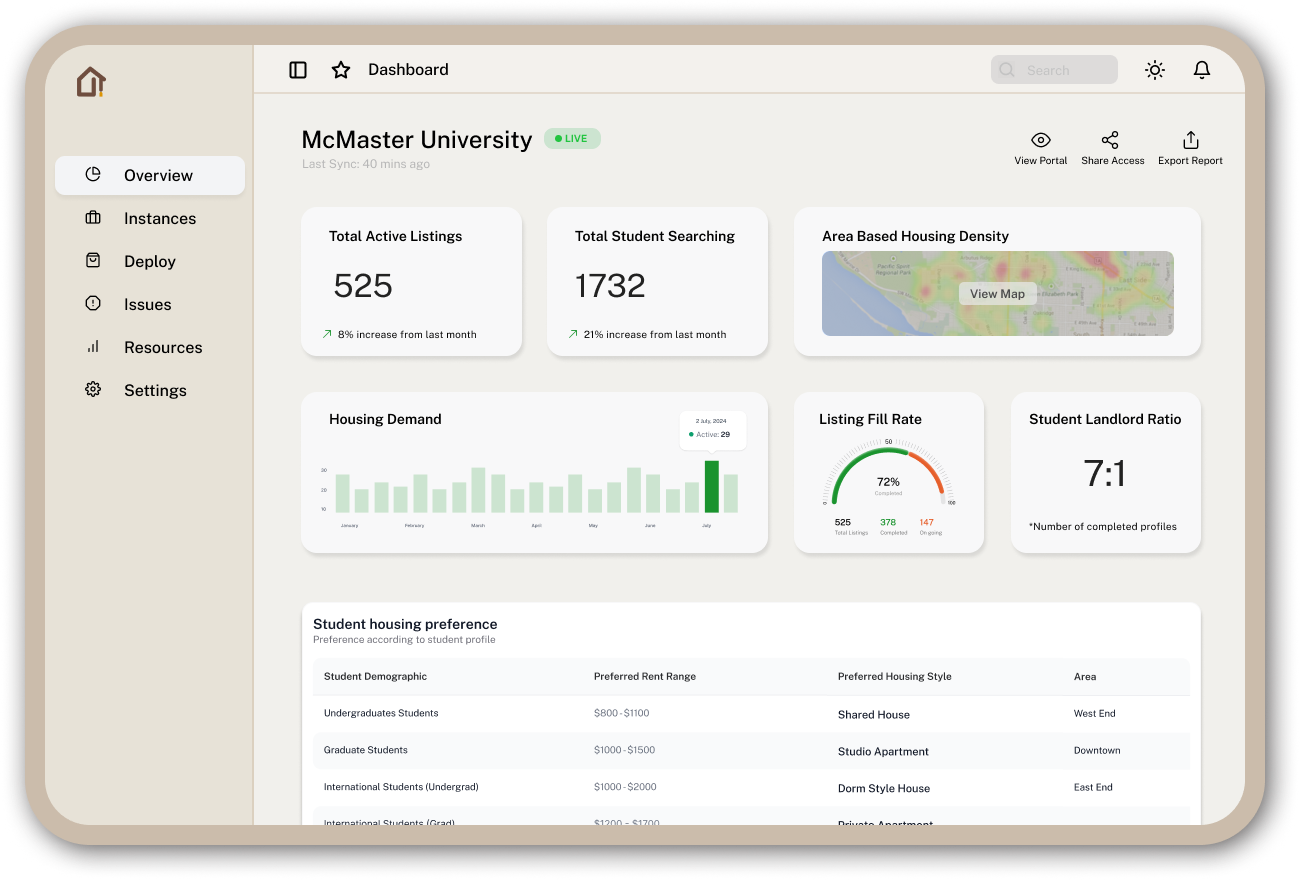
Universities can monitor housing trends, manage verified listings, and support students more effectively. Real-time analytics and co-branded experiences help improve student satisfaction while reducing administrative overhead.
Process
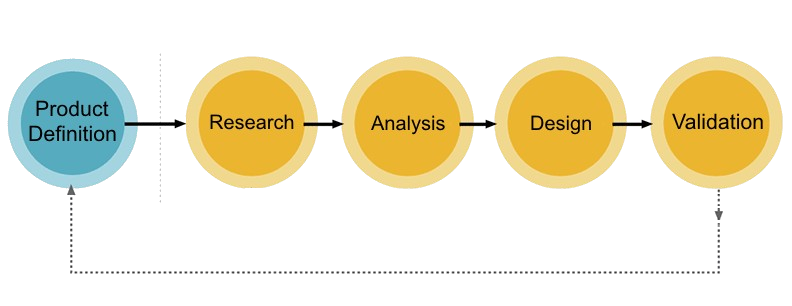
User & Market Research

The challenge was to identify the pain points that students had when availing rental services and finding a solution that meets all their needs and mitigates the pain points.
User Interviews
I began by gathering direct feedback from fellow students navigating the rental process. By walking through the process myself and documenting challenges at each stage, I uncovered friction points around trust, verification, and communication.
Market
I researched and reviewed campus housing portals at other universities to benchmark features, discover gaps, and identify best practices. This analysis helped confirm that problems were not unique to our campus, but widespread across student housing markets.
Key Findings
60% students struggle to find verified listings on platforms.
Students fall victim to scams causing financial and emotional stress.
Landlords have difficulty processing leases within a timely manner.
Universities have Insufficient infrastructure to handle housing needs.
User Persona
Research directly shaped the platform’s core features and user flows, ensuring StudentBase addressed the real needs of all market participants.

Alex Chen Undergraduate Student, 20
- Goals: Find safe, affordable housing; save time; avoid scams
- Pain Points: Unverified listings, hard-to-reach landlords, risk of losing deposit
- Needs: Verified listings, simple applications, secure payments

Mike Patterson Landlord/Property Owner, 36
- Goals: Fill vacancies quickly, simplify management, ensure reliable payments
- Pain Points: Tenant screening, slow communication, risk of late payments
- Needs: Easy listing tools, direct communication, automated rent collection
Journey mapping

To understand the student housing experience end-to-end, I mapped out each step in the journey—from searching for listings to moving in. Using interview findings and firsthand experience, I identified friction points such as unclear listing verification, slow communications, and application confusion. This journey map became the foundation for prioritizing features, simplifying onboarding, and creating more transparent, user-friendly flows.
- Student flow
- Landlord flow
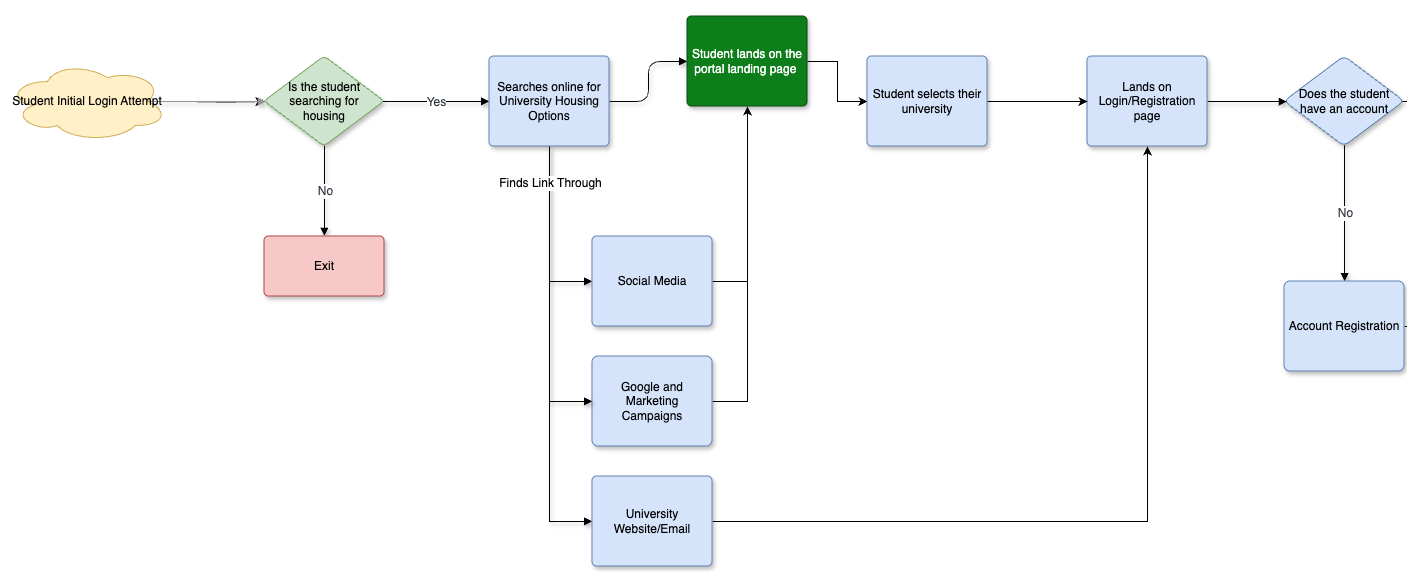
Design System

To create consistency across StudentBase’s platform, I developed a lightweight design system in Figma. It included a defined color palette (primary, secondary, and accent tones), reusable UI components (such as buttons, inputs, and navigation), and typography standards. This system not only gave the product a cohesive visual identity but also sped up prototyping and improved handoff to developers.
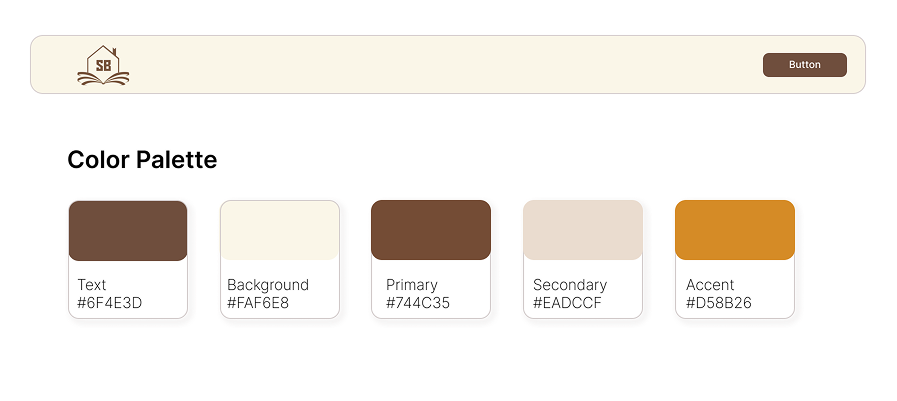
Prototypes

I began with rough sketches and simple grayscale wireframes to validate the core user flows for students and landlords. These were focused purely on structure and navigation
After validating the basic flows, I moved into medium fidelity prototypes. These included more detail—such as form layouts, button placements, and clearer navigation hierarchies—while still avoiding distractions from colors or branding.
Wireframes
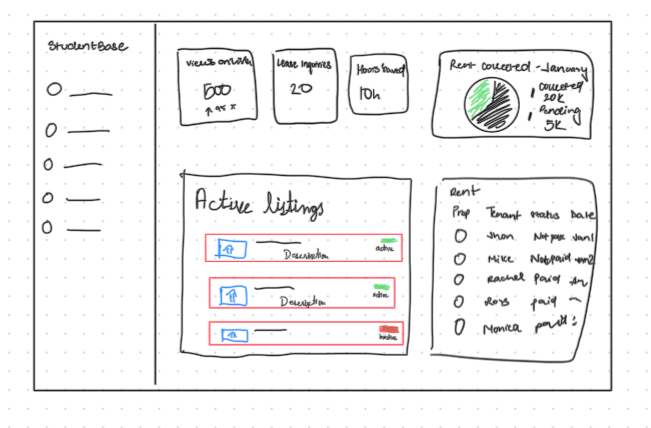
Provides landlords with a clear overview of active listings, rental income, and tenant activity at a glance.
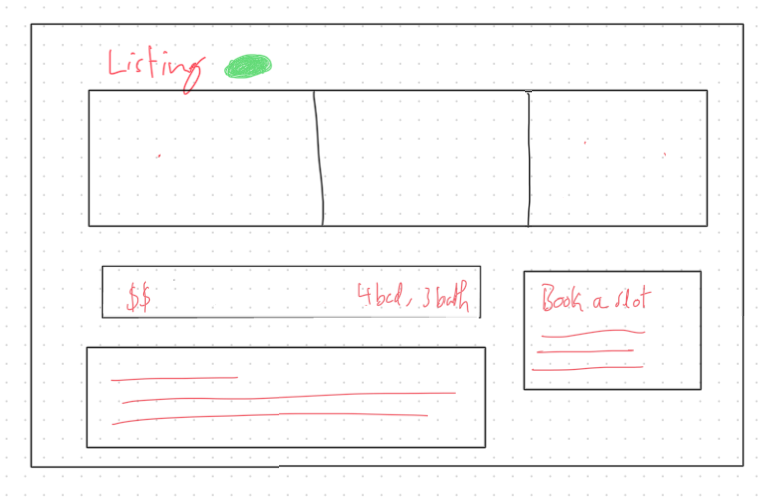
Showcases detailed information for a rental property, including photos, pricing, and key amenities.
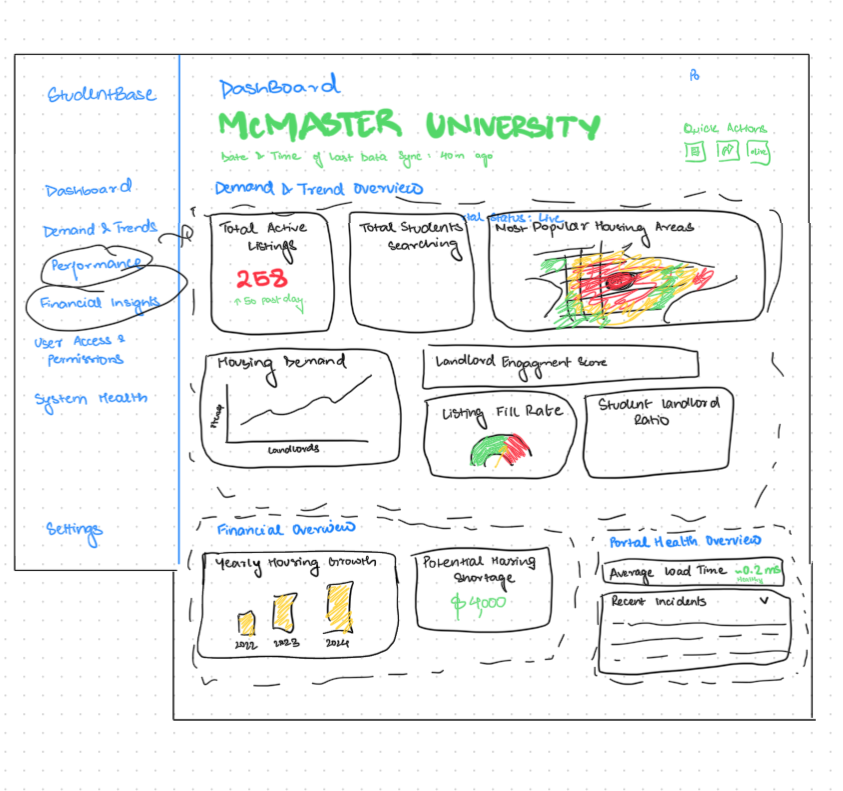
Displays the number of partnered properties, a usage heatmap, and overall housing trends for university admins.
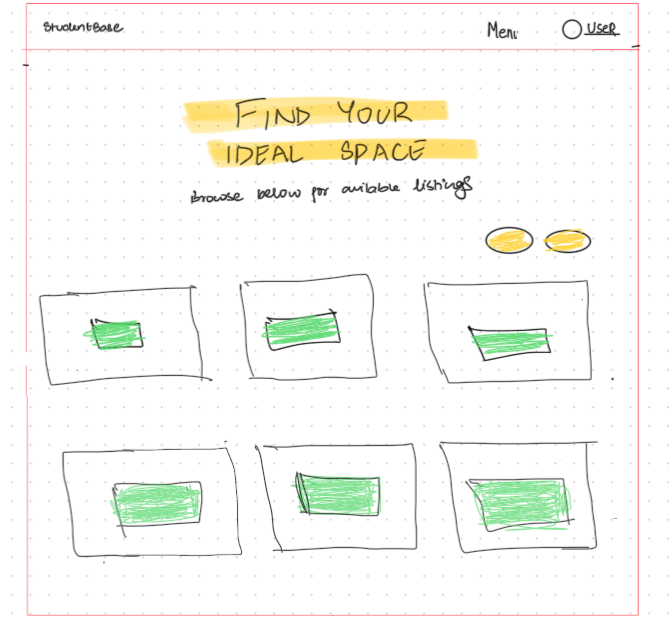
Central hub where students browse and discover verified housing options, tailored to their search needs.
Med-fidelity
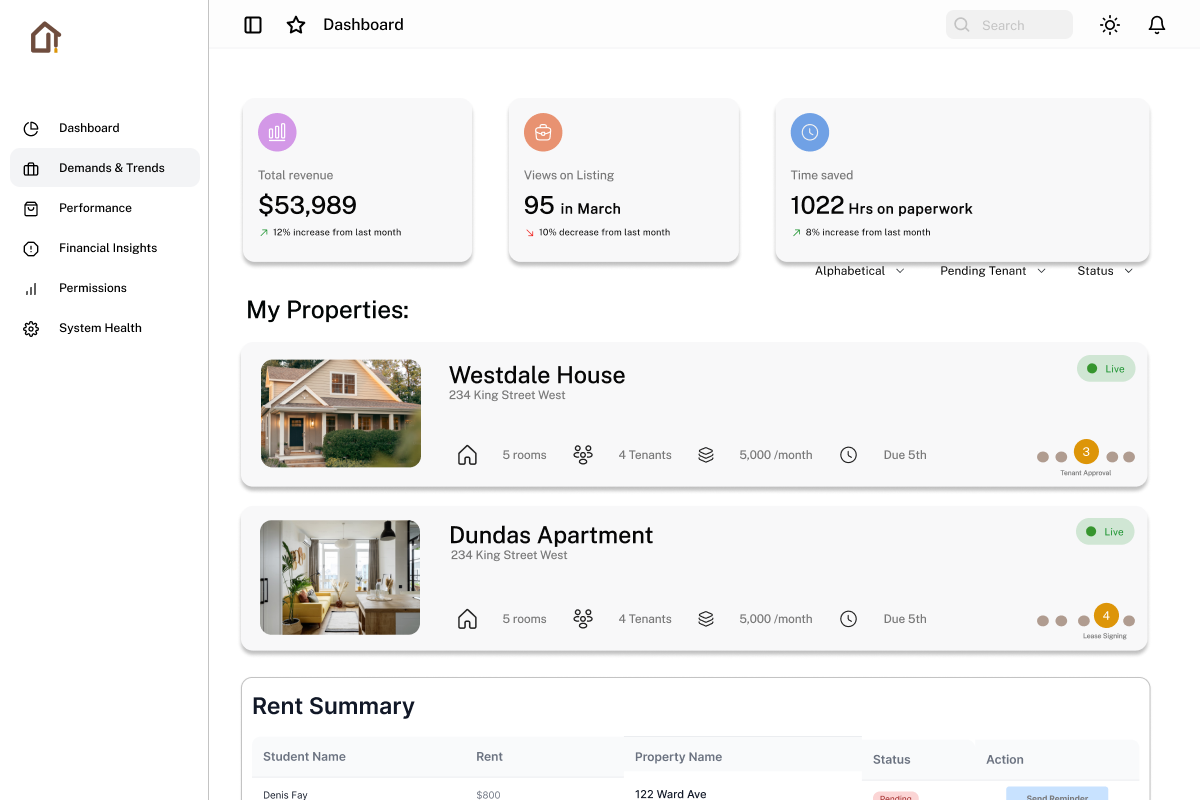
Medium-fidelity wireframe showing clearer layouts for income tracking and active listings, refining navigation and data presentation.
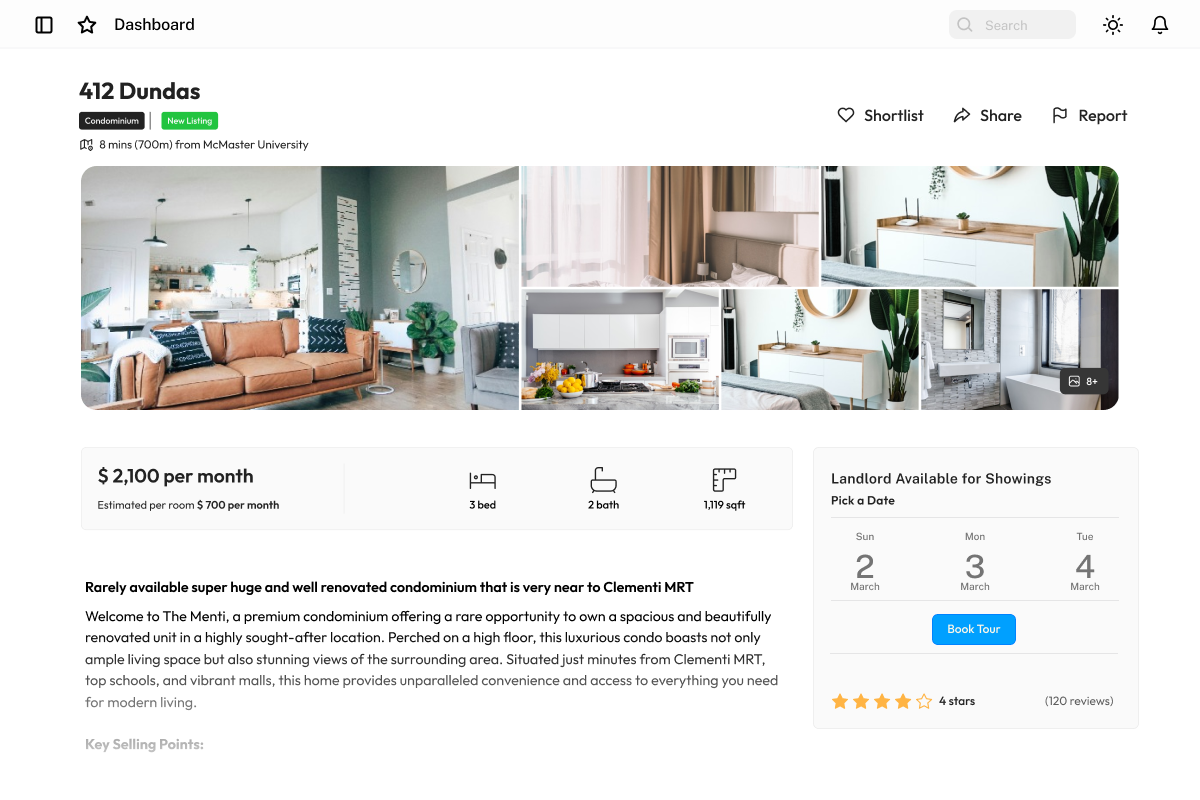
Mid-fidelity design introducing layout consistency, detailed property cards, and interaction points such as “apply” or “save.”
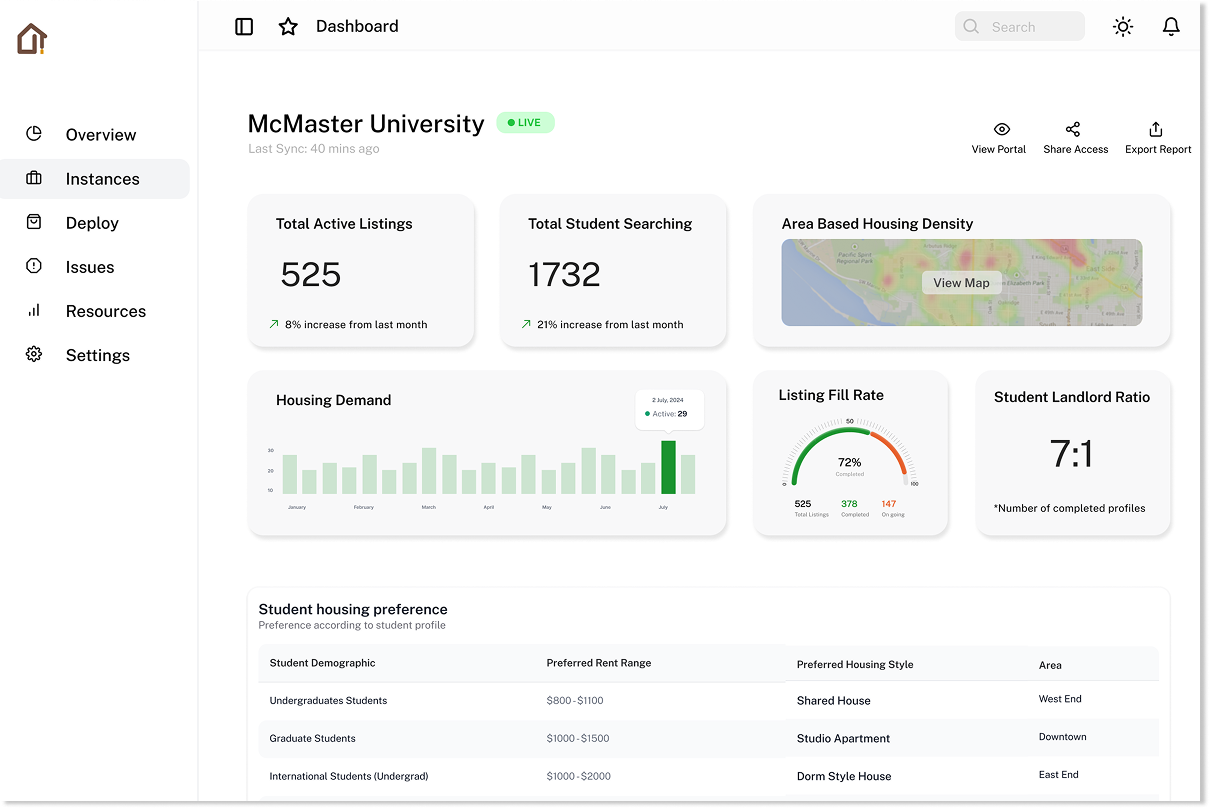
Enhanced version featuring structured charts, a property usage heatmap, and improved information hierarchy for admin insights.
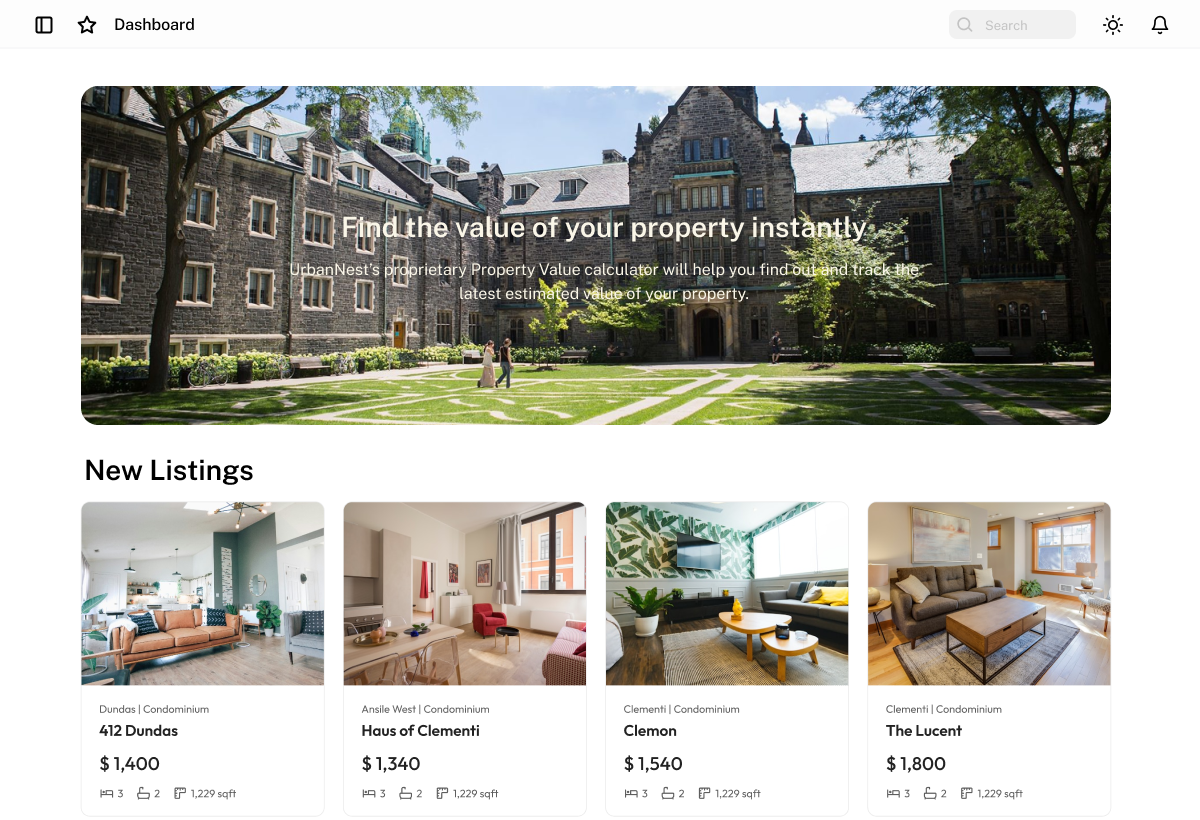
Medium-fidelity prototype showcasing a refined browsing flow with property filters, listing previews, and structured content blocks.
Final Design

High-fidelity
I translated the approved flows into high-fidelity prototypes in Figma, applying the StudentBase design system (color palette, typography, and components). These prototypes closely resembled the final product and enabled realistic user testing.
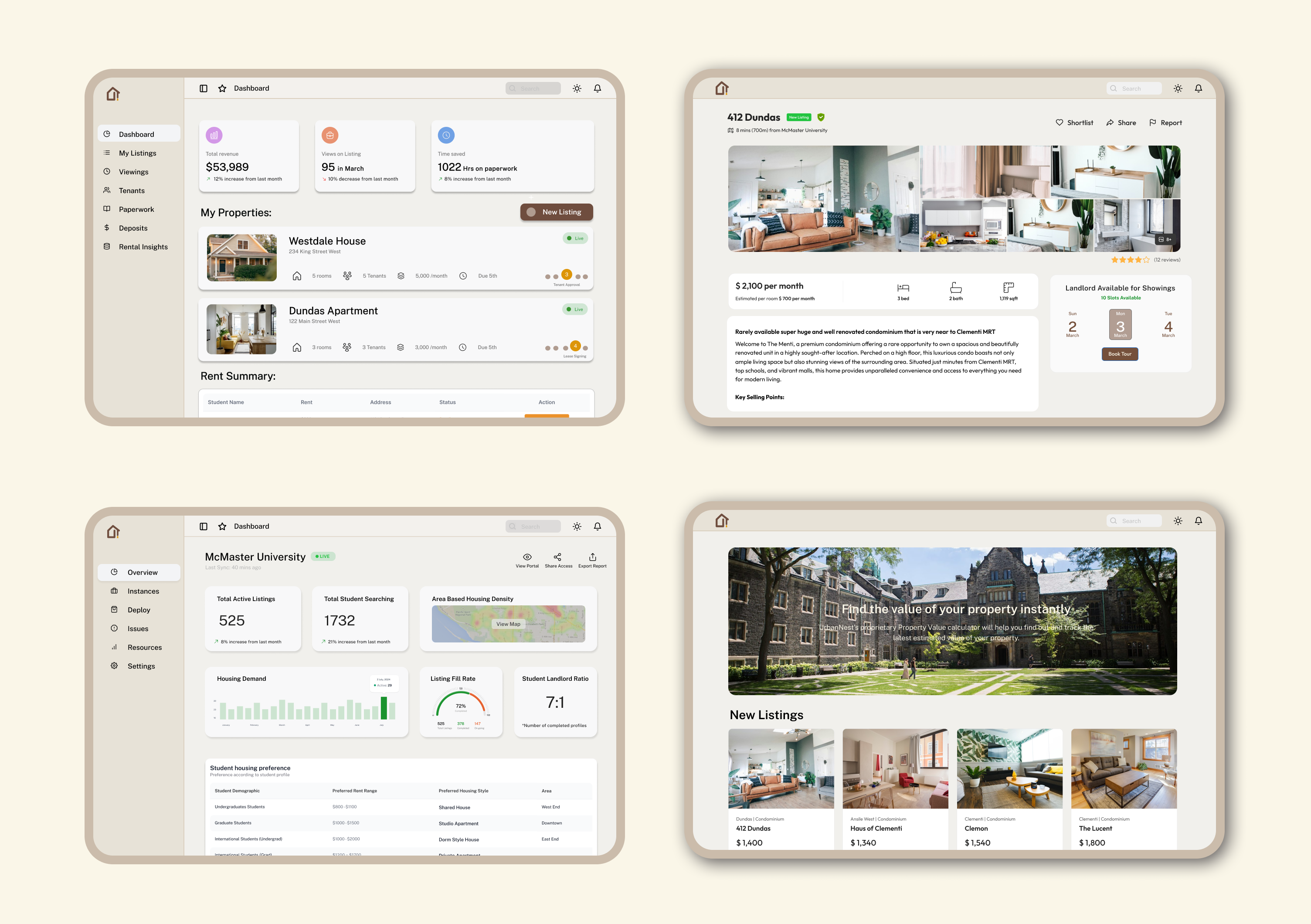
Outcomes

The early designs and research directly supported StudentBase’s first product launch. Within just four months, the platform facilitated $25,000 in student leases and generated $8,000 in revenue. The system has since grown to support over 3,500 students, 700 landlords, and 5 universities. My design contributions helped StudentBase move from idea → functional MVP, aligning stakeholders around clear user flows, a consistent design system, and validated prototypes. This foundation positioned the startup for traction in an underserved market.
Reflections
Designing for a pre-seed startup taught me how to move quickly while still grounding decisions in user research. I learned the importance of balancing MVP speed with usability, and how to design for multiple stakeholders (students, landlords, universities) with distinct needs. Most importantly, I developed confidence in creating scalable design systems and prototypes that drive clarity across teams.
Addional Discussion points
- Landing page design for MVP launch
- Usability Testing
- Roll-out of new website